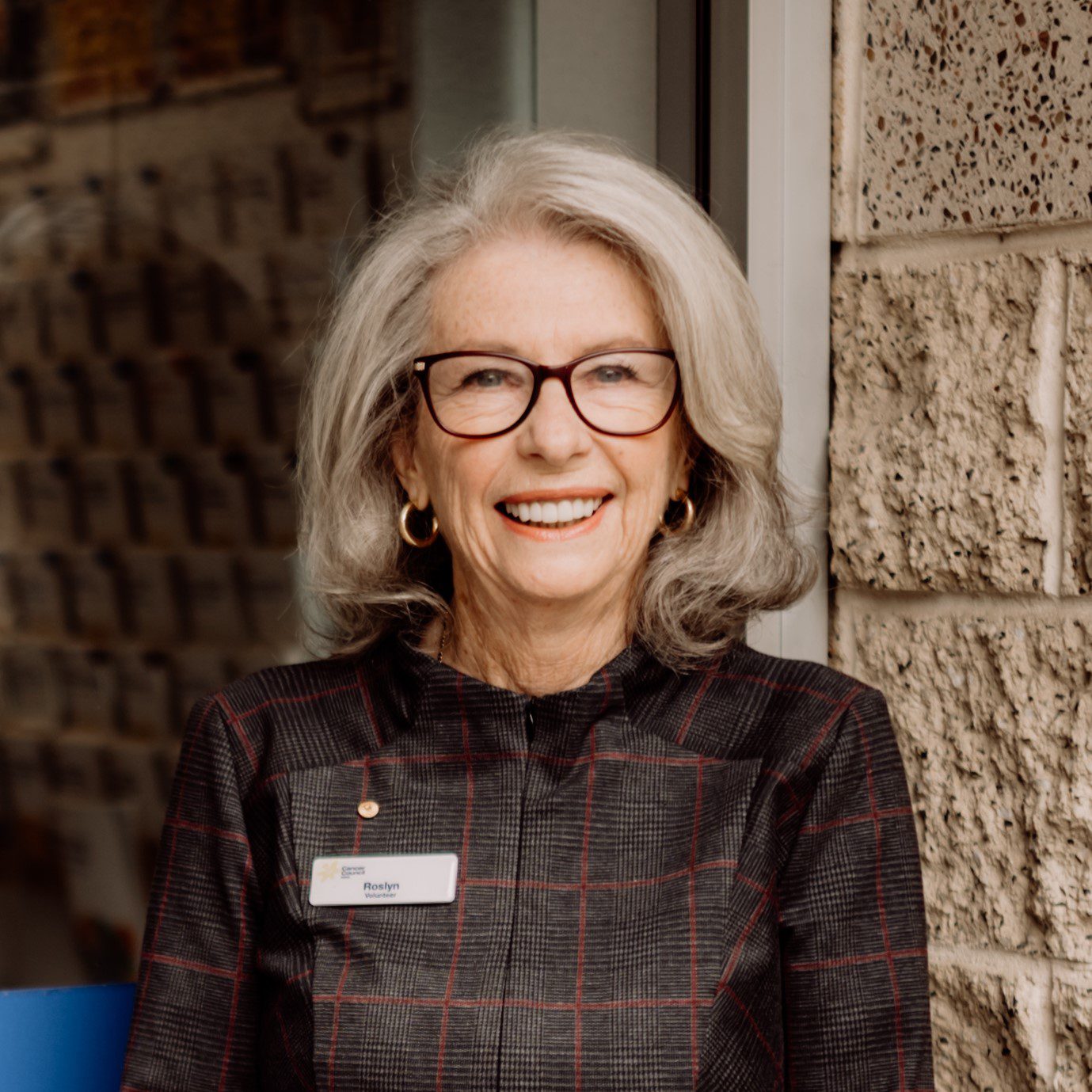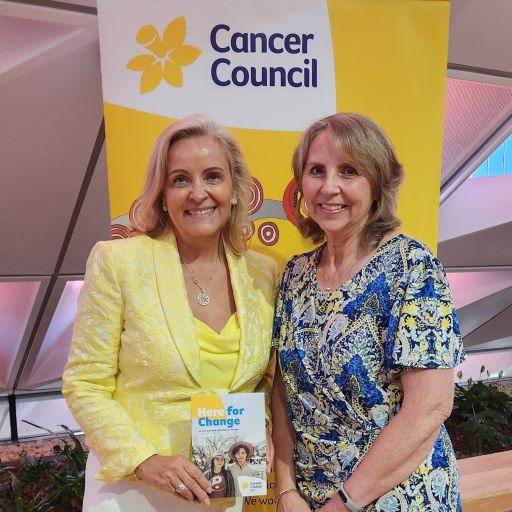Here for change – speaking notes
Cancer Council NSW’s 2023 Election Priorities
Facts, statistics and personal stories
If you are talking about the Here for Change campaign or Cancer Council NSW’s 2023 Election Priorities below are some points for you to use. Don’t feel you need to include all of these points, choose the ones that you think would resonate with your audience.
Why are we advocating?
- With around 1 in 2 people expected to be diagnosed with cancer in their lifetime, cancer impacts every family in NSW.
- Our researchers predict that over the next 25 years, around 1.52 million people in NSW will be diagnosed with cancer and almost 1 in 3 people diagnosed will die of cancer unless we act to change this.
- It has never been more important to do more of what we know works to prevent, detect, and treat cancers and support people with cancer to live well.
- Cancer survival has improved by almost 40% over the past 30 years. However, inequities in outcomes by cancer type and population groups have widened, and more and more cancer survivors need improved supportive care.
What are we asking to change?
In the lead-up to the 2023 NSW state election, Cancer Council NSW want the next NSW Government to be Here for Change, by committing to at least one of their four election priorities.
- Invest in cancer prevention - so more people can live a cancer free life,
- Improve early detection and diagnosis of bowel cancer - so more lives can be saved,
- Introduce the highest standards of cancer care – so people with cancer receive the best possible care, no matter who they are or where they live,
- Support people to live well during and after a cancer diagnosis – so they can live a higher quality of life.

As a two-time breast cancer survivor, I feel lucky to draw breath every day. Before my diagnosis I neglected my health and wellbeing; eating badly, not exercising, working long hours, and consuming alcohol at levels that, I now know, would be considered high risk. It goes without saying that my family’s health is a high priority for me, and I have open conversations with my three daughters around health and wellbeing and especially around reducing drinking to reduce risk.Ros English, Central Coast NSW
Why do we we want to increase investment in cancer prevention?
- So more people can live a cancer free life.
- Investment in cancer prevention works.
- Spending on prevention has fallen behind.
- As this spend has fallen, chronic conditions such as obesity have remained high, and young people are increasingly exposed to marketing that promotes habits and behaviour that can harm their health.
Recommendation: Cancer Council NSW is calling on the next NSW Government to invest more in cancer prevention to.
- Reduce risky drinking in the community,
- Protect children and young people from the harms of e-cigarettes,
- Reduce children’s exposure to unhealthy food marketing,
- Deliver a healthy eating campaign, focusing on fruit and vegetable intake.

I came home after a bad day at work to my Bowel Cancer Screening Test letter that said my sample had tested positive for ‘faecal occult blood. I was referred to a Gastroenterologist who conducted the colonoscopy and advised that I should come back for another one. When diagnosed for a second time, I was told by my oncologist that my prognosis, if chemotherapy didn’t work, was around 12 months. Being told you might have around a year to live was even more sobering than hearing I had the initial diagnosis. Doing this test, and I nearly didn’t do it, has meant I am here today.Karen Grega, Eastern Suburbs NSW
Why do we want to improve early detection and diagnosis of bowel cancer?
- So more lives can be saved.
- Bowel cancer is the second highest cause of cancer death in NSW.
- 9 in 10 bowel cancers can be cured when caught early.
- Bowel cancer screening can save lives yet only 1 in 2 people who are sent a bowel screening kit will do the test.
- Bowel cancer screening rates in NSW remain one of the lowest in the country
- NSW has some of the longest wait times in Australia for a colonoscopy following a positive bowel screening test.
Recommendation: Cancer Council NSW calls on the next NSW Government to increase participation in.
- Bowel cancer screening to 60%,
- Cut wait times for colonoscopy to the recommended 30 days.

Having been diagnosed with four different primary cancers between 2020 and 2022, I did my own research and knew I wanted to be referred to a multi-disciplinary team inclusive of allied health professionals who specialised in each cancer type. My research showed, this was my best chance for both survival and getting the best functional outcomes. I don’t understand why this isn’t the standard of care everyone receives. I wanted to live, but also live well.Elizabeth Vanderjagt, St Clair NSW
Why do we want to introduce the highest standard of cancer care so people receive the best possible care, no matter who they are or where they live?
- Optimal Care Pathways are endorsed by all Australian governments as the standard of cancer care.
- Research shows that people who get care that meets the standards in the Australian Optimal Care Pathways have a higher chance of surviving cancer than those that do not.
- Despite a world-class health system, cancer outcomes can vary depending on where you live and where you receive care.
- Everyone should get the care that is outlined in the Australian Optimal Care Pathways but not everyone does.
Recommendation: Cancer Council NSW calls on the next NSW Government to adopt the Optimal Care Pathways so everyone can access the highest standards of care including.
- Access to multidisciplinary teams of health professionals,
- Seeing a specialist, getting the tests needed, starting treatment within recommended timeframes, and
- Receiving support at every stage.
Support people to live well during and after a cancer diagnosis so they can have a higher quality of life.
- Research shows that people with a current cancer diagnosis and those with a past cancer diagnosis continue to face unmet supportive care needs.
- Cancer survival has improved by almost 40% over the past 30 years but living longer with cancer doesn’t always mean living well.
- The effects of cancer don’t stop after treatment and people should be able to access ongoing support.
- As more people will be diagnosed with cancer, there’s never been a more important time for the NSW Government to develop a model of care that will meet the ongoing needs of people with a current or past cancer diagnosis.
Cancer Council NSW calls on the next NSW Government to ensure people can access the support they need to live well both during and after a cancer diagnosis.
